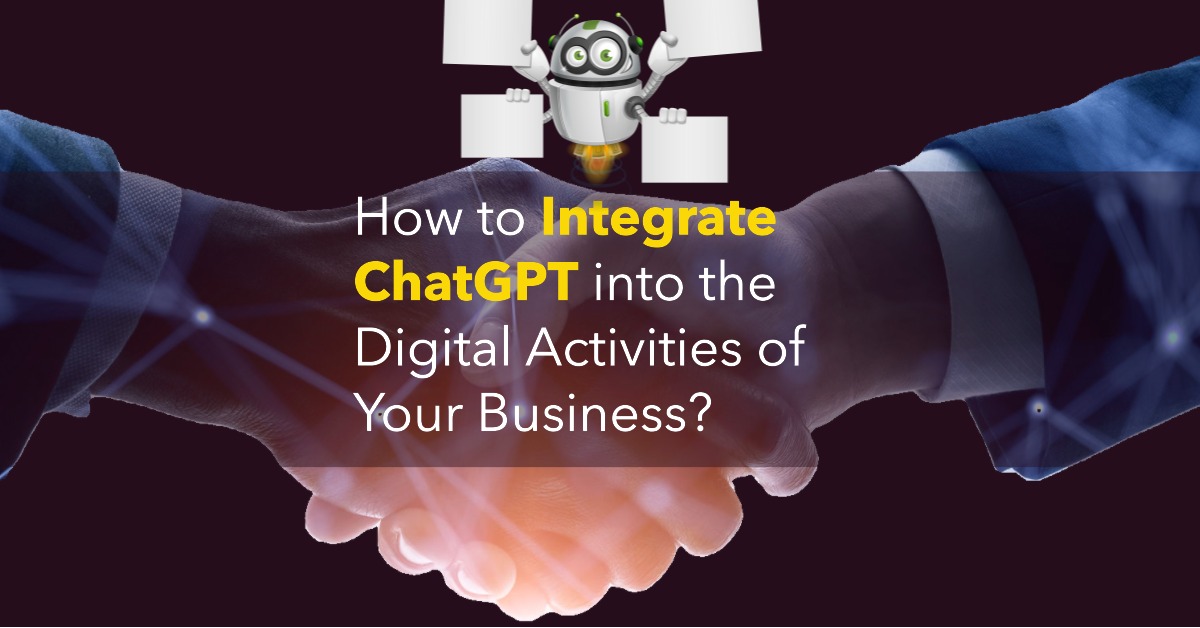Chatbots have become an increasingly popular tool for businesses looking to improve their digital presence. These AI-powered programs are designed to simulate human conversations, providing a more engaging experience for customers and clients alike. One of the most advanced chatbots on the market is ChatGPT, a natural language processing tool developed by OpenAI. If you’re interested in integrating ChatGPT into your business’s digital activities, read on for some tips and best practices.
Understanding ChatGPT
Before we dive into how to integrate ChatGPT into your business’s digital activities, it’s important to understand what ChatGPT is and what it can do. ChatGPT is an artificial intelligence language model that can understand and generate natural language. It’s been trained on a massive amount of text data, making it one of the most advanced natural language processing tools available today.
ChatGPT can be used for a variety of tasks, from answering customer service inquiries to generating personalized recommendations for products or services. It’s a highly versatile tool that can be customized to fit the specific needs of your business.
Identifying Use Cases
The first step in integrating ChatGPT into your business’s digital activities is to identify the use cases where it can be most effective. Some potential use cases for ChatGPT include:
- Customer service: ChatGPT can provide automated responses to common customer service inquiries, freeing up human agents to focus on more complex issues.
- Sales and marketing: ChatGPT can be used to generate personalized product or service recommendations based on a customer’s browsing or purchase history.
- Content creation: ChatGPT can be used to generate written content such as blog posts, social media updates, and product descriptions.
By identifying the specific use cases where ChatGPT can add value to your business, you can ensure that you’re implementing the tool in a way that will have the greatest impact.
Choosing a Platform
Once you’ve identified the use cases for ChatGPT in your business, the next step is to choose a platform for implementation. There are a variety of platforms available, ranging from open-source tools to fully managed services. Some popular platforms for ChatGPT include:
- Hugging Face: Hugging Face offers an open-source library of natural language processing tools, including ChatGPT. This platform is ideal for businesses that have in-house development teams that can handle the technical aspects of implementation.
- BotStar: BotStar is a fully managed chatbot platform that offers ChatGPT integration. This platform is ideal for businesses that want a turnkey solution with minimal technical overhead.
- IBM Watson: IBM Watson offers a range of AI-powered tools, including a natural language processing platform that can be used to integrate ChatGPT into your business’s digital activities. This platform is ideal for larger businesses with complex technical needs.
By choosing the right platform for your business’s needs, you can ensure seamless integration of ChatGPT into your digital activities.
Customizing ChatGPT
Once you’ve identified the use cases for ChatGPT in your business and chosen a platform for implementation, the next step is to customize the tool to fit your specific needs. Customization can include:
- Training the model: ChatGPT can be trained on your business’s specific data to improve its accuracy and relevance.
- Customizing responses: ChatGPT’s responses can fit your business’s tone and voice.
- Integrating with other tools: ChatGPT can be integrated with other tools and platforms, such as your CRM system or social media accounts.
By customizing ChatGPT to fit your specific needs, you can ensure that the tool is providing maximum value to your business.
Measuring Success
Finally, it’s important to measure the success of your ChatGPT integration. This will allow you to identify areas where the tool is performing well, as well as areas where it may need improvement. Some metrics to track include:
- Conversation volume: How many conversations is ChatGPT having with customers or clients?
- Conversation length: How long are these conversations lasting?
- Accuracy: How accurate are ChatGPT’s responses?
- Customer satisfaction: Are customers satisfied with the experience of interacting with ChatGPT?
By tracking these metrics over time, you can identify trends and make adjustments to your ChatGPT implementation as needed.
Final Thoughts
Integrating ChatGPT into your business’s digital activities can provide a range of benefits, from improving customer service to generating personalized recommendations. By understanding what ChatGPT is and what it can do, identifying the use cases for your business, choosing the right platform, customizing the tool to fit your needs, and measuring success, you can ensure a successful integration. So why not give it a try and see how ChatGPT can help take your digital presence to the next level?



